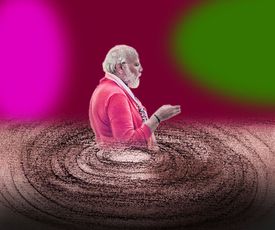Fools rush in where angels fear to tread, said Alexander Pope. It looks like INDIAns are doing that.
I don’t mean the billion and more who inhabit the landmass of India that is Bharat, but those who have rallied under the acronymic banner of INDIA to take on Narendra Modi. Hardly had they come together and put up their banner when they delivered their first volley: a no-confidence motion on the government.
A no-confidence motion is the brahmastra in the opposition’s parliamentary armoury. It can be moved only with the support of 50 members of the lower house. Once defeated, the next motion can be moved only after six months.
No-trust motions have been dreaded by rulers ever since the British parliament voted in 1782 that it could “no longer repose confidence in the present ministers” led by Lord North who had lost the war of American independence. (We know that war too well, don’t we? The loser in the field, Lord Cornwallis, came to India and saved his face by defeating Tipu and taking his sons hostage.) Though it didn’t set a convention immediately, the fall of North’s government after the motion was carried has been cited as the first precedent.
A no-trust motion brings out the best in Parliament. Even when they know the outcome of the vote, both sides field their best debaters who come after painstaking research over the successes and failures of the government, its policies and conduct. The speeches acquire a certain level rarely witnessed in the humdrum debates of every day. Even a coarse debater would appear to have acquired a certain diction.
So it will be in the Lok Sabha next week. Other things remaining equal and Om Birla remaining even-handed, the house will debate the motion for three days. Given the numbers on either side, the outcome of the vote is predictable. The government has 331 MPs plus or minus a few, against the opposition’s 144 assured votes, not counting the neutrals. That’s no match.
Why then is the opposition rushing in with the motion if it is all going to be sound and fury that would end in nothing? Simple. They feel that unlike Jawaharlal Nehru or any of his successors, Modi has been keeping away from Parliament as far as possible.
Like in England, the first motion in India too was moved after defeat in a war. The opposition moved one against Nehru’s government after the humiliating defeat at the hands of China. The motion was defeated, but Nehru loved it. “Personally, I have welcomed this motion and this debate. I have felt that it would be a good thing if we were to have periodical tests of this kind.” Nehru loved being in Parliament, and every moment of the pandemonious life there.
Today, the whole country and the house have been agitated over the two-month-long murder and mayhem in Manipur, yet the PM has avoided speaking about those. The only statement he made was before the media, minutes before the monsoon session of the houses was to commence. The oppositon treats it as an affront to Parliament—that the ruler of the country, who can talk about everything under the sun and above the Balakot clouds, has avoided talking about mayhem in a border state. They want to draw out the ruler of India and remind him that he is answerable to the elected representatives.
With good reason. The northeast where a hundred tribes remain restless is not just another region. It is the eastern gate of India. It was with the help of these restless tribes that the last attempt to conquer India was beaten back. Remember the gravestones of Kohima and Imphal.
prasannan@theweek.in


